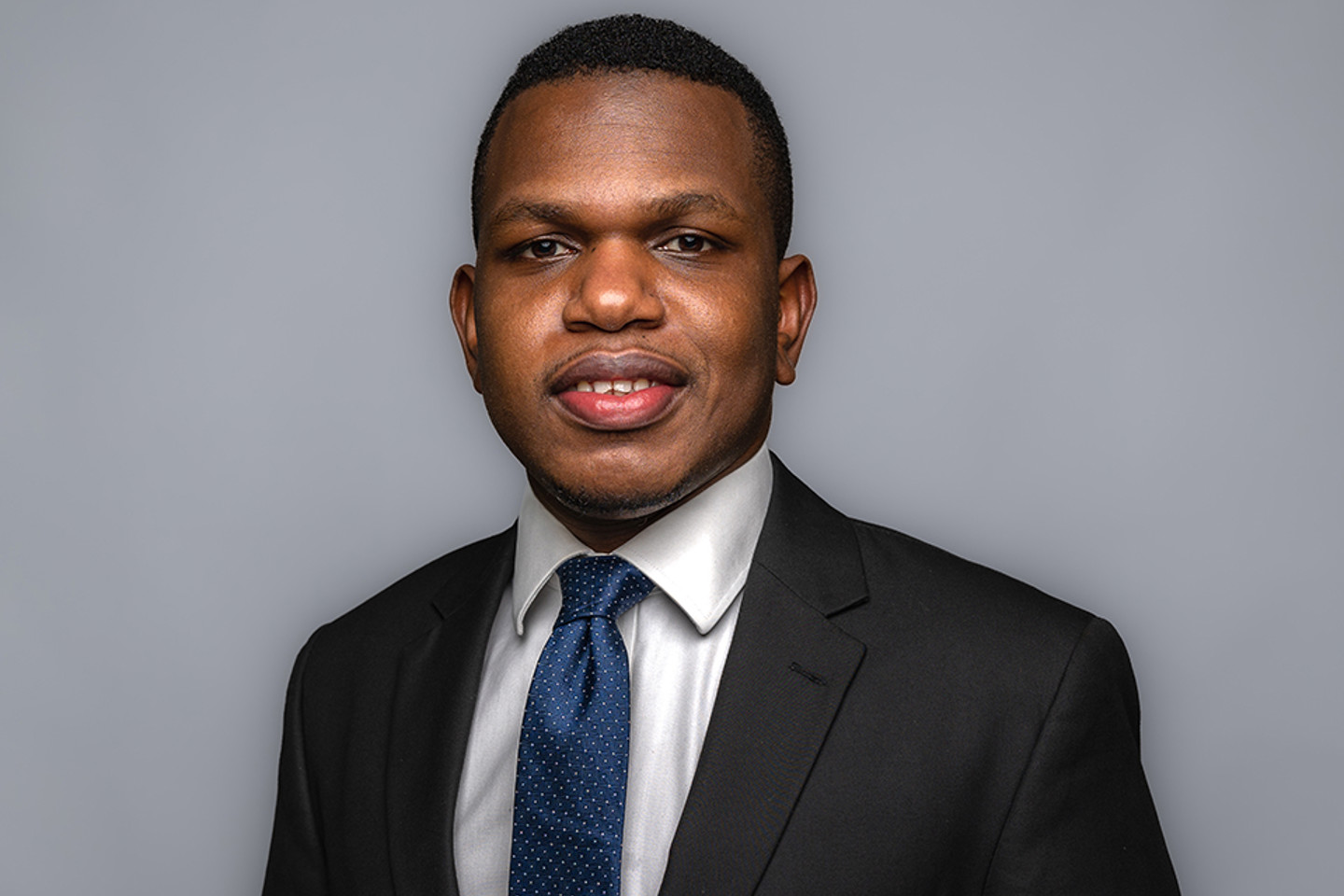
Nicholas Brookes
Partner | Legal
British Virgin Islands

Nicholas Brookes
Partner
British Virgin Islands
No Content Set
Exception:
Website.Models.ViewModels.Components.General.Banners.BannerComponentVm
Our analysis of a recent court judgment in the ongoing liquidation of the high profile crypto-asset hedge fund Three Arrows Capital is by Nicholas Brookes and Romauld Johnson, part of Ogier's BVI team representing the joint liquidators.
Read our update on crypto insolvency issues from Three Arrows, which illustrates implications of the judgment including
The decision in Russell Crumpler and Christopher Farmer (as Joint Liquidators of Three Arrows Capital Ltd (in Liquidation)) v (1) Cheong Jun Yoong and (2) Three Arrows Capital Ltd (in Liquidation)[1] is one of the latest developments in the ongoing liquidation of the cryptoasset hedge fund, Three Arrows Capital (3AC).
In late 2022, the Liquidators of 3AC applied under ss 186 and 274A of the Insolvency Act, 2003 (IA) for directions and declaratory relief as to the beneficial ownership, and for delivery up, of certain digital assets (BVI Claim). Their application required the participation of a certain Singapore resident, Mr Cheong, who subsequently objected to the jurisdiction of the BVI Commercial Court. In December 2023, the BVI High Court dismissed Mr Cheong's jurisdictional challenge. The judgment is a reminder to creditors of the implications of submitting a claim form in an insolvency proceeding. It also highlights the territorial breadth of office-holders' powers under the Insolvency Act 2003 (IA) and raises questions about the lex situs of cryptoassets. This article considers some of the court's findings and its potential implications.
3AC was a master fund through which investments were placed via offshore and onshore feeder funds. It held a portfolio of assets informally called "DeFiance" and the feeder funds issued "Class DeFiance" shares and interests to external investors. The portfolio consisted of cryptocurrency tokens, NFTs, and contracts for future tokens or equity known as “SAFES”[2] or “SAFTS” in the name of 3AC.[3] Mr Cheong managed the portfolio. He asserts that 3AC held the portfolio on trust for his benefit and issued parallel proceedings in Singapore. When he was served with the BVI Claim, Mr Cheong applied to set aside service on the grounds that Singapore was the convenient forum.
Dismissing Mr Cheong's application, Justice Mangatal found:
The BVI Court found that Mr Cheong had submitted to the jurisdiction for the purpose of resolving this dispute by his submission of a R184 claim form in 3AC's liquidation. In doing so, he required the Liquidators to resolve issues about the existence of a trust, and the nature of the relationship between 3AC and the “DeFiance” investors. Mangatal J considered the well-known decisions in Stichting Shell Pensioensfunds v Krys,[4] Erste Group Bank AG London Limited v JSC (VMZ Red October)[5] and Rubin v Eurofinance SA.[6] The judge held that Mr Cheong's claim by itself was sufficient to require the creditor to have all questions, of whatever kind against the debtor resolved within the insolvency as administered by the court of the jurisdiction of that insolvency. Consequently, he could be served as of right.
In the alternative, Mangatal J held that the Court should exercise voluntary jurisdiction over Mr Cheong. There was no dispute that there was a serious case to be tried on the claim. Mangatal J held that the Liquidators' application under ss.186 and 274A, i.e. for directions and for delivery up, fell within the 'Enactment Gateway' of CPR r.7.3(10) because the sections had extraterritorial effect.
Though there has not been any detailed BVI case law on CPR 7.3(10), Mangatal J having considered the English Court of Appeal's decision in Orexim Trading v Mahavir Port[7] in relation to the English CPR's equivalent provision accepted that it depended upon the construction of the statutory provision in question. In that case, the English provisions on fraudulent trading were considered to be of unlimited territorial scope. Relatedly, in AWC Fund v ZCM,[8] the Privy Council considered certain Bahamian avoidance provisions and said that “it made no sense” to treat the Bahamian avoidance provisions as being territorially limited.[9] In relation to ss 186(5) and 274A IA, Mangatal J considered that:
While the decision concerned the Civil Procedure Rules pre-2023, the same gateways apply to the CPR (Revised Edition) 2023.
The Liquidators also relied on the property gateway (CPR 7.3(6)) i.e. the whole subject matter of the claim relates to property in the jurisdiction. It is settled law in the BVI that cryptoassets are property.[10] However, this gateway required the BVI Court ascertain the assets' location. The Liquidators argued the location of cryptoassets was connected to the location of the legal owner, which on both parties' cases was 3AC; given 3AC is a BVI company, the lex situs was the BVI.
The BVI Court considered that Mr Cheong had the better argument that the place of central management and control of the assets was the key determining factor.[11] In support of this, the fact that 3AC was incorporated in the BVI was less significant compared to the numerous factors connecting to Singapore, namely the residence of the directors, the location of (1) 3AC's central management, (2) fund administrator and (3) investment manager, and the location Mr Cheong managed the DeFiance portfolio. Mangatal J also considered the issue of 'control of a private key' important and that this rests with Mr Cheong in Singapore. She did not consider it relevant that in light of the ongoing liquidation, the legal owner was itself managed and controlled in the BVI.
So - is the situs connected to the legal owner's location or the location of control of the cryptoasset? If control of the asset was the only determining factor, the court is likely run into difficulties when fraudsters (or worse, persons unknown) have taken possession and control of the assets. In D'Aloia[12] and Ion Science[13] - both involving a fraud, situs was determined based on the domicile of the 'owner'. Falk J in Tulip[14] explained that Butcher J in Ion Science was in fact concerned with 'residence' and that 'domicile' was not the sole test. A pure 'residence' test may prove problematic for offshore jurisdictions generally, Tulip being an example where England was preferred to Seychelles. Often offshore companies do not carry on business in the place of incorporation. That said, in the recent decision (from an ex parte hearing) in AQF v XIO et al,[15] the BVI Court considered that the cryptoassets were in the BVI, as they were issued and centrally controlled by the Second and Third Respondents incorporated in the BVI.
With the growth and reliance of the crypto industry on offshore jurisdictions, overall, the decision is welcomed. It demonstrates the BVI Court's ability to resolve difficult and novel questions arising from crypto disputes, and its ability to maintain an orderly administration of insolvency proceedings. Ultimately, the law on the subject of lex situs remains in its infancy. The differing reasoning leads one to question whether there should be a single determining factor of the lex situs of cryptoassets and/or whether depending on each case, the factors ought vary or should be balanced. In this regard, the BVI being a forerunner on these issues, no doubt we can expect the much needed judicial guidance to clarify the determining factor(s) soon.
The Liquidators at Teneo were represented by Ogier, who instructed leading counsel Richard Fisher KC of South Square. The team was also assisted by Daniel Kessler of 4 Stone Buildings currently on secondment with Ogier.
[1] Claim No. BVIHC(COM)2023/0003 (Claim No. BVIHC(COM) 2022/0119)(Decision and Judgment on 5th and 12 December 2023).
[2] Under a SAFE, an investor pays an up-front investment and obtains the right to be issued a certain number of shares in the company in future, which is typically triggered upon the occurrence of a specific event.
[3] Under a SAFT, similar to SAFEs, the investor acquires a right to future tokens rather than shares.
[4] [2015] 2 WLR 289.
[5] [2015] EWCA Civ 379.
[6] [2012] UKSC 46.
[7] [2018] EWCA Civ 1660.
[8] [2019] UKPC 37
[9] Ibid. See [37]-[42].
[10] Philip Smith v Torque Group Holdings Limited et al (Claim No. BVIHC (COM) 0031 of 2021); Chainswap Limited v The Owner Of Digital Wallet et al (Claim No. BVIHC (COM) 0031 of 2022);
[11] See [152].
[12] [2022] EWHC 1723 (Ch).
[13] Ion Science Limited & Duncan John v Persons Unknown, Binance Holdings Limited, Payment Ventures Limited (unreported) [2020] (Comm).
[14] [2022] EWHC 667 (Ch)
[15] Claim No. BVIHC(COM) 2023/0239 (Judgment on 23 November 2023).

Nicholas Brookes
Partner | Legal
British Virgin Islands

Nicholas Brookes
Partner
British Virgin Islands

Romauld Johnson
Associate | Legal
British Virgin Islands

Romauld Johnson
Associate
British Virgin Islands
Ogier is a professional services firm with the knowledge and expertise to handle the most demanding and complex transactions and provide expert, efficient and cost-effective services to all our clients. We regularly win awards for the quality of our client service, our work and our people.
This client briefing has been prepared for clients and professional associates of Ogier. The information and expressions of opinion which it contains are not intended to be a comprehensive study or to provide legal advice and should not be treated as a substitute for specific advice concerning individual situations.
Regulatory information can be found under Legal Notice
Sign up to receive updates and newsletters from us.
Sign up
No Content Set
Exception:
Website.Models.ViewModels.Blocks.SiteBlocks.CookiePolicySiteBlockVm